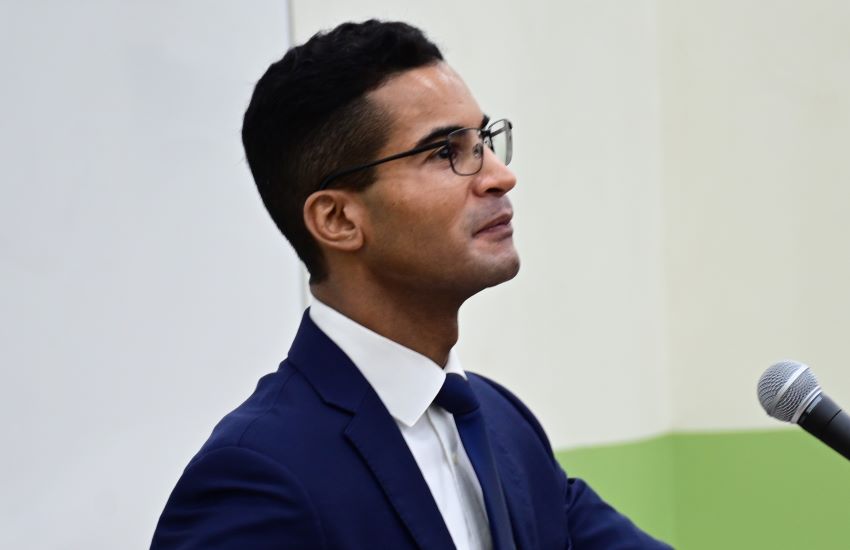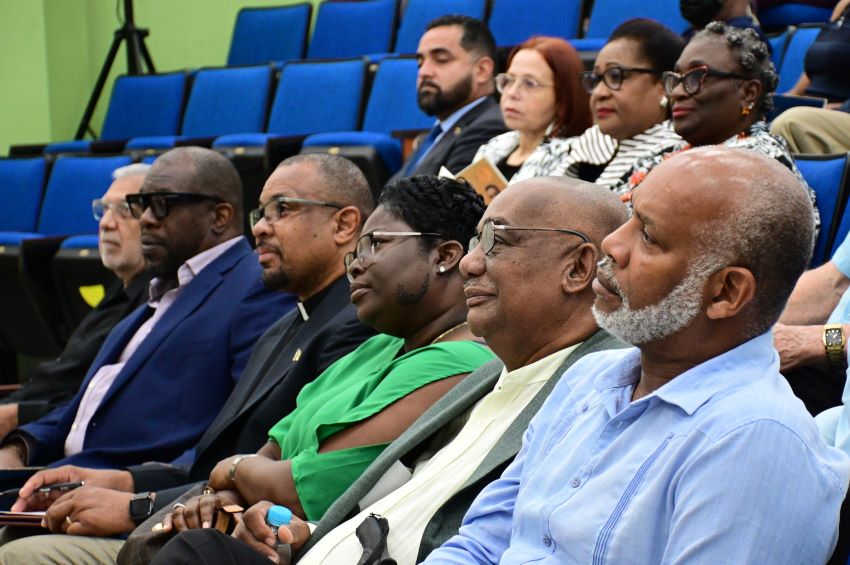
The Constitution Reform Commission (CRC) is expected to hand over its report to the President of Barbados, Her Excellency The Most Honourable Dame Sandra Mason, in mid-April of this year.
Chairman of the CRC, Mr. Justice (rtd) Christopher Blackman, shared this news on Monday night while introducing Professor Richard Albert, who delivered the Commission’s public lecture, at the Henry Fraser Lecture Theatre, The University of the West Indies, Cave Hill Campus.
Mr. Blackman told his audience: “The CRC is now in its final 100 days as we look forward to the delivery of the Report of the Commission, to Her Excellency the President of Barbados, with an accompanying Draft Constitution Bill, which would contain the Commission’s recommendations, reflective of the over 200 submissions received from residents and organisations within Barbados, and from abroad.”
During the lecture, which was themed – The Grenade, the Hourglass and the Sundial: The Lifetime of Constitutions – Professor Albert spoke about the importance of rewriting constitutions, stating that they give people hope and a vision.
He noted that the longer a constitution endures, the less it reflects the present reality. He stated: “The older a constitution is the less likely it is to reflect the values of the present generation. Constitution amendment is usually very hard….”
Explaining that there are three models of constitutional reform in the world, he identified them as the Grenade, the Hourglass, and the Sundial, as he outlined that there were advantages and disadvantages to each of them.
Professor Albert continued: “The Grenade model is not appropriate for all constitutions…. We instead expect constitution-making today to occur just like you are doing it, according to the Hourglass model of constitutional time; according to rules, in predictable fashion, with transparency and order, leading to stability and predictability with the new Constitution (of Barbados) that will be enacted whenever that day comes.
“And so, the modern best practice for constitution-making is what you all are doing, adopting a new constitution in a way that prioritises order, rules, [and] predictability.”

He noted that not all of the work of the CRC would be done in the public domain but stressed that its report would reveal the depth of the commissioners’ deliberations.
In response to a question, Professor Albert said the release of the island’s constitutional draft would be a momentous occasion in history, not just in Barbados and the region, but the world.
“Why of the world? Because this will be the latest constitution-making effort to follow the Hourglass model that has a chance of succeeding,” he stressed. Professor Albert said the average lifespan of democratic constitutions is 42 years.
According to Professor Albert, “constitutional time in the United States of America follows the Sundial model, rotating for years through crises and shocks both great and small”, with little consideration being “ever seriously given to breaking with time, replacing the constitution.
In contrast, he said, the Grenade and Hourglass models prevail in much of the rest of the constitutional world. Crises or shocks, both real and perceived, trigger the writing of a new constitution that emerges ultimately from the chaos of the Grenade model or from the orderly self-contained procedures of the Hourglass model.
